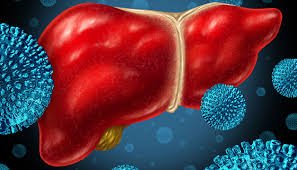Every day, approximately 3,500 people succumb to the devastating effects of Hepatitis, with the majority of deaths caused by hepatitis B and C infections. As the world marks Hepatitis Day this year, our Correspondent Korede Abdullah in this write up brings to public awareness salient facts about this killer disease. And, the need to avoid the risks of the infection.
Alarming Fatality Toll
The daily toll of fatality caused by Hepatitis translates to around 146 deaths every hour, or 2.4 deaths every minute, underscoring the urgent need for increased awareness, prevention, and treatment efforts to combat this growing global health crisis.
Every year on 28 July, the World Health Organisation, (WHO) and partners mark the World Hepatitis Day for commemoration around the globe and to increase awareness and understanding of viral hepatitis and the diseases that it causes.
The theme of Hepatitis Day 2024 is ‘It is time to act.’ It is a crucial moment to raise awareness about the devastating impact of viral hepatitis, which, according to WHO report, affects over 350 million people worldwide.
As the world commemorates the day, it also celebrates the progress made in the fight against hepatitis, the resilience of those living with the disease, and the tireless efforts of healthcare workers, advocates, and researchers working towards a hepatitis-free future.
The date is earmarked to honour and celebrate the birthday of Nobel Laureate Professor Baruch Samuel Blumberg, who discovered of the hepatitis B virus.
Number of Hepatitis victims
According to the information obtained by Africa Health Report (AHR) through the Nigeria’s Ministry of Health, available record shows that one in every 12 persons worldwide is living with viral hepatitis; approximately 240 million persons are infected with chronic HBV & another 80 million are infected with chronic HCV infection.

Globally it is indicated that an estimated 70% of primary liver cancer and 54% of liver cirrhosis cases are caused by viral hepatitis & approximately 1.4 million deaths from viral hepatitis occur each year.
According to WHO, the proportion of persons living with viral hepatitis is greatest in Asia, sub-Saharan Africa and Egypt. The WHO records show Nigeria accounts for 8.3% & 4.5% of the global burden of chronic HBV & HCV respectively.
Number of Deaths
The World Health Organization (WHO) estimates that 1.3 million people die every year due to viral hepatitis, which is the second leading infectious cause of death globally.
This accounts for approximately 4.5% of all deaths worldwide, surpassing HIV/AIDS, malaria, and tuberculosis. Viral hepatitis is a major public health threat, with deaths from hepatitis B and C infections exceeding those from other notable infectious diseases.
Number of Deaths Every Day
Every day, approximately 3,500 people succumb to the devastating effects of hepatitis, with the majority of deaths caused by hepatitis B and C infections.
This daily toll translates to around 146 deaths every hour, or 2.4 deaths every minute, underscoring the urgent need for increased awareness, prevention, and treatment efforts to combat this growing global health crisis.
Minister of Health statement

On December 24, 2023, at the 2023 African Hepatitis Summit in Abuja,
the Coordinating Minister of Health and Social Welfare, Professor Ali Pate, stated that hepatitis is preventable and curable, and advocated for a simplified approach deliverable at the primary level of care.
He however noted that hepatitis continues to pose a huge public health threat, unleashing devastating consequences among patients grappling with chronic infections worldwide.
The minister lamented that the high cost of treatment creates a barrier to accessing hepatitis services in the African region.
In Pate’s words, “We will persist in working with World Health Organisation (WHO) and other stakeholders as well as mobilize and sustain domestic funding until Nigeria is hepatitis free as every step taken towards the elimination of hepatitis is a stride towards safeguarding our future generations”
The Minister advocated for augmented financial commitment and support for Hepatitis control response saying that “it is imperative for African Countries to align with the WHO’S new global health sector strategy which has delineated new actions and targets to eliminate viral hepatitis by 2030.”
Dr Ademola Ajibade, a medical practitioner, who spoke to our correspondent on the phone said this year’s World Hepatitis Day theme, ‘It’s Time to Act,’ serves as a call to action to accelerate efforts towards eliminating viral hepatitis by 2030.
Ajibade added that the theme emphasizes the need for immediate and collective action to increase awareness and education as well as improve access to testing and treatment.
“The message of the theme resonates well. It implies ‘It’s time to act to save lives, reduce liver-related deaths, and make hepatitis-free communities a reality. So every community should join forces to make a difference and create a world where no one suffers from hepatitis.”, Ajibade advised.
Types of Hepatitis

There are five types of hepatitis viruses – A, B, C, D and E. All hepatitis viruses can cause acute infection and inflammation of the liver, but infection with hepatitis B, C and D viruses can also result in chronic hepatitis that can lead to cirrhosis and liver cancer.
Viral hepatitis B and C are major health challenges and root causes of liver cancer. In the WHO European Region, 15 million people are estimated to live with chronic hepatitis B and 14 million with hepatitis C. Most of these people are unaware of their infection and continue to carry the virus.
They are therefore at high risk of developing severe chronic liver disease and can unknowingly transmit the virus to other people.
Challenges in Treating Hepatitis in Nigeria
The vast majority of people lack the necessary awareness of the disease. The limited knowledge about hepatitis among the general population and healthcare workers greatly hampers the treatment. .
Access to diagnostic tests is insufficient, coupled with high cost of treatment, especially in the rural areas. The Nigeria’s health Minister alluded once to the limitation of availability and accessibility of testing facilities, equipment, and trained personnel to diagnose hepatitis B and C infections during the Abuja summit on hep last year
Another challenge experts say face Nigeria is that of inadequate vaccination. There is limited access to and uptake of hepatitis B vaccination, which is the primary means of preventing hepatitis B infection.
The newspaper learned that many adults are unaware of the risks and consequences of hepatitis B infection, or the benefits of vaccination.
Poor data collection contributes to a lack of awareness about hepatitis among the general public, healthcare providers, and policymakers, further exacerbating the challenges facing hepatitis treatment in Nigeria.
The critical shortage of skilled healthcare professionals to manage and treat the patients has always been in the front burner, coupled with the government insufficient funding for hepatitis prevention, testing, and treatment programs.
Addressing the Challenges
When asked how to overcome the changes of Hepatitis in Nigeria, Dr Ajibade said addressing the challenges of Hepatitis in Nigeria requires a multi-faceted approach.
“All the relevant health stakeholder should continue to raise awareness and educate the public about Hepatitis transmission, prevention, and treatment.
“Not only that, there should be an improvement in the vaccination coverage. That is, the government should increase access to Hepatitis B vaccination, especially for adults.”, Dr Ajibade said.
He added that the Nigerian healthcare infrastructure should be enhanced and upgraded with modern facilities, equipment, and personnel to provide quality care. He advised government to allocate more resources to Hepatitis prevention, diagnosis, and treatment.
Some of the responders who spoke with our correspondent on the World Hepatitis Day were of the view that, if the government can face the challenges frontally, Nigeria can reduce the burden of Hepatitis and improve the lives of those affected. They said the theme of the commemoration should resonate: ‘It is time to act!’



